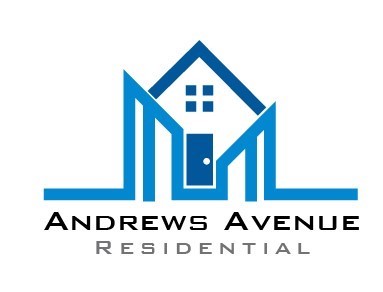Evolution of Rental Property Management
Rental property management is evolving with technology playing a significant role. Smart home technology is becoming more popular, allowing landlords and tenants to remotely control property functions like security, temperature, and lighting. Virtual tours are gaining traction, enabling potential tenants to view properties online before physically visiting them. Automated rent collection systems are simplifying payment processes for both landlords and tenants. Data analytics are being used to optimize rental property performance, helping landlords make informed decisions.
Technology in Rental Property Management
Technology in rental property management has become a game-changer, transforming how landlords and property managers operate. Here are some key trends to watch:
- Automated Communication: Property managers are adopting automated tools to streamline communication with tenants, making it easier to send updates, notifications, and reminders.
- Smart Home Integration: The rise of smart devices like thermostats, door locks, and security cameras is enhancing property security and tenant convenience.
- Data Analytics: Utilizing data analytics software helps in making informed decisions about property maintenance, tenant screening, and rental pricing.
- Virtual Tours: Virtual tour technology allows potential tenants to explore properties remotely, saving time and expanding the reach of property listings.
Sustainability Trends in Property Management
Sustainability is a key focus in property management trends for the future. Green buildings, which are energy-efficient and environmentally friendly, are becoming more popular. Property managers are incorporating renewable energy sources like solar panels and energy-efficient appliances to reduce their environmental impact. Water conservation is also a priority, with more properties implementing systems to reduce water waste. Waste management practices are evolving to include recycling and composting to minimize landfill waste. Sustainability in property management is not only beneficial for the environment but can also lead to cost savings in the long run.
Data Analytics and Rental Property Management
Data analytics in rental property management involves using information and statistics to make better decisions. It helps property owners and managers understand tenant behavior, predict maintenance needs, and optimize rental prices. By analyzing data, landlords can spot trends, identify potential issues before they arise, and improve overall efficiency. Key benefits of data analytics in rental property management include:
- Identifying market trends for setting competitive rental prices
- Predicting maintenance requirements to prevent costly surprises
- Understanding tenant preferences for better customer service
- Improving overall operational efficiency
In 2024 and beyond, data analytics will play a crucial role in revolutionizing how rental properties are managed, leading to more informed and strategic decision-making in the industry.
Tenant Experience and Community Building
When managing rental properties, enhancing the tenant experience and fostering a sense of community are crucial. Here are some key trends to watch in 2024 and beyond:
- Personalized Services: Expect a shift towards tailored services that cater to individual tenant needs.
- Technology Integration: Property managers are increasingly using technology to improve communication with tenants and streamline community-building activities.
- Sustainability Initiatives: More properties are focusing on eco-friendly practices to attract environmentally conscious tenants.
- Social Events and Networking: Communities are organizing events and activities to encourage interaction among tenants and create a sense of belonging.
- Feedback Mechanisms: Property managers are emphasizing feedback channels to understand tenant preferences and improve overall satisfaction.
- Collaboration Spaces: The rise of co-working and shared spaces within rental communities is promoting collaboration and networking opportunities among tenants.
Outsourcing and Automation in Property Management
Outsourcing and automation are becoming increasingly popular in the property management industry. Property managers are turning to outsourcing tasks like maintenance, accounting, and tenant screening to specialized companies to streamline operations and save time. Automation tools are also being utilized to make processes more efficient, such as automated rent collection, maintenance requests, and communication with tenants. These trends are expected to continue shaping the future of rental property management, leading to more effective and scalable operations.
Regulatory Changes Impacting Property Management
Regulatory changes can significantly affect how property management operates. In 2024 and beyond, it’s crucial to stay informed about these changes to navigate the rental property landscape effectively. Keep an eye out for amendments to landlord-tenant laws, zoning regulations, and property maintenance requirements. Stay ahead by understanding how these regulatory shifts might impact your property investments and rental income.
Remote Property Management
When it comes to remote property management, technology plays a crucial role in making things easier. With advancements in digital tools and platforms, property owners can now oversee their rental properties from afar, checking on maintenance, tenant communication, and financial matters without being physically present. Remote property management also allows for quick responses to issues and a more efficient way of handling day-to-day operations. By utilizing online portals and smart devices, property owners can stay connected and informed, ensuring their properties are well taken care of even from a distance.
Crisis Management in Rental Property
When managing rental properties, it’s crucial to be prepared for crises that may arise. Here are some key points to keep in mind:
- Emergency Fund: Have a reserve of funds set aside for unexpected expenses such as property repairs or tenant emergencies.
- Communication: Maintain open lines of communication with tenants to address any issues promptly and efficiently.
- Insurance: Make sure you have appropriate insurance coverage for your rental properties to mitigate financial risks in case of disasters.
- Safety Measures: Implement safety protocols to protect your tenants and properties from potential hazards.
- Legal Compliance: Stay updated on local laws and regulations to ensure you are operating within legal boundaries.
By proactively addressing crisis management in your rental property, you can better safeguard your investments and provide a secure environment for your tenants.
Looking Ahead: Future Predictions for Rental Property Management
As we look ahead to the future of rental property management, several trends are expected to shape the industry in the coming years. Here are some key predictions to watch out for:
- Technology Integration: Expect an increase in the adoption of property management software and advanced tech solutions to streamline operations and enhance tenant experiences.
- Focus on Sustainability: With a growing emphasis on environmental concerns, rental property managers are likely to prioritize eco-friendly practices and energy-efficient upgrades in their properties.
- Remote Management: The trend of remote work is projected to influence property management, leading to a rise in virtual property tours, online rent payments, and digital communication with tenants.
- Personalized Services: Property managers may tailor their services to meet the unique needs and preferences of tenants, offering customized experiences to enhance tenant satisfaction and retention.
Stay tuned as we delve deeper into these predictions and explore how they will shape the future of rental property management in the years to come.


